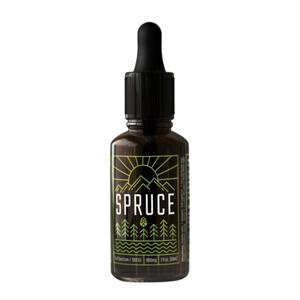
This article will answer your questions about whether Ohio legalizes hemp-derived CBD/THC. It is now legal in Ohio to cultivate and sell hemp-derived CBD or THC for medical purposes. This will hopefully encourage more Ohioans and others to experiment with hemp-derived CBD/THC. This is the next step in making Ohio's Hemp Industry a viable one.
Ohio has legalized hemp-derived CBD
The new Ohio law, SB 57, will make it legal to consume hemp-derived CBD for human consumption. The law abolishes criminalization of the use hemp and establishes a licensing scheme for growers as well as processors. The new laws will require licensed companies to test all hemp products they sell. Ohio will now allow cosmetics and dietary supplement containing CBD-derived hemp.
Hemp-derived CBD products are already sold in some chain stores. Kroger, the nation’s largest grocery store announced in June that it would sell hemp-derived CBD products to 1,000 stores in 17 states. Ohio law will make it legal to buy and consume CBD-derived products from hemp by 2020.

Hemp is naturally high in CBD, and contains only trace amounts of THC. Hemp products don't cause users to feel high. In contrast, marijuana contains more THC. Additionally, the amount of CBD found in marijuana depends on its strain. Ohio's law will therefore apply different standards to marijuana-derived CBD as well as hemp-derived CBD.
This new law also enables people in Ohio to sell hemp-derived CBD oil outside of dispensaries. This law removes the need for a license when selling hemp-derived CBD. It will be legal for anyone to sell hemp-derived CBDoil as long the oil is not more than 0.3%.
Ohio has legalized THC for medicinal use.
Ohio's legalization of cannabis-derived medicine in medicinal use is for patients who have it prescribed by their doctors. There are 21 qualifying conditions that cannabis-derived medicine can be used for, including epilepsy, cancer, traumatic brain injuries, epilepsy and multiple sclerosis. The body may also be protected against certain cancers by marijuana, which is an appetite stimulant.
There are many conditions that marijuana can be used for, in addition to those listed. Chronic nausea is permissible if it is cyclical, or is caused by cannabinoid Hyperemesis. It can also be used to treat pain, PTSD, and chronic pain. It is also allowed for people who are on hospice care or have terminal illnesses.

Patients who are medical marijuana patients can legally possess up to 45 days worth of marijuana depending on the type and amount of THC. Ohio residents can search the website of the Medical Marijuana Control Program to locate licensed dispensaries. Many dispensaries provide curbside pickup services. It is legal to possess medical marijuana in Ohio. However it is illegal for recreational purposes.
Ohio legislators have rejected legalization efforts. In Ohio, four cities also passed cannabis decriminalization bills during the 2020 election. A significant movement has been started to make marijuana legal for adult users. Many believe that marijuana prohibition has negatively impacted public health. Ohioans support legalization of marijuana.
FAQ
What are the best uses of CBD?
CBD can also be used to treat anxiety. It can be used to treat pain, insomnia and epilepsy as well as inflammation, depression, and many other conditions.
There are many ways to consume CBD. CBD is available in many forms.
There are many benefits to consuming CBD. It has been shown to help people suffering from chronic pain, PTSD, anxiety, and more.
What is the future in CBD?
The future is bright for the CBD industry. It's clear to see why so many people have jumped on this industry. With CBD products making up over $1Billion worldwide, it's easy for people to see why this market has grown exponentially.
According to Statista, worldwide sales of cannabidiol (CBD), are expected to hit $22.4 billion in 2019. That's an increase of almost 200% from 2018!
It is also expected that the CBD market will grow at a compound annual growth of 22.5%. That would translate to approximately $6.8 million in revenue by 2020.
This is great news for companies looking to enter this space as well as those already operating in the sector. The CBD market is still young and may face challenges.
Can CBD have a future in medicine?
The answer is yes. However, it is not because of its medical benefits. Its ability to make people feel better without feeling high is what makes it so attractive.
The fact that it doesn't make you feel any different when you use it makes it perfect for those who are looking for an alternative to prescription drugs.
As we have seen in studies, cannabis has been shown to be effective in treating pain, anxiety and depression.
Cannabinoids in cannabis interact with our brains. This interaction can produce feelings of relaxation, well-being, and even a sense of well-being.
Cannabidiol (CBD), oil can be used for health purposes. It's therefore important to fully understand its functions and effects.
What is the difference in CBD prices between states?
Prices for CBD products can vary depending on where you live. In fact, prices can differ by more than ten times!
The general rule of thumb is that prices rise the farther north you travel. CBD can be found in Alaska at $35 per kilogram, and Hawaii at $200 per grams.
This trend is continuing across the country. Prices for grams range from $5 to $2,500.
Why is it happening?
The varying levels and regulations of cannabis regulation are one reason prices can vary widely. Some states require that CBD products have very low levels of THC (the psychoactive part of marijuana). Other states don’t care about how much THC is in CBD products.
This is why some companies decide to sell products in one country and then send them to another.
How can CBD products be promoted in a legal manner by CBD companies?
The FDA does not regulate hemp as an agricultural commodity. The Controlled Substances Act governs all other cannabis derivatives, such as marijuana. CBD has yet to be subject to specific regulations.
CBD is legal at the state level in 29 states, but federal law still considers it illegal. Businesses looking to sell CBD products are left in uncertainty.
The FDA also sets strict guidelines about how CBD products are promoted. They must disclose the THC content of any CBD products. Without supporting scientific evidence, CBD cannot be claimed to treat certain medical conditions.
Additional information is required by the FDA regarding manufacturers' manufacturing practices, quality control measures, and other details. Companies are also required to participate in clinical trials in order to demonstrate safety and efficacy.
When developing their own marketing strategies, companies should take into account these points.
Can I use CBD during pregnancy?
The research on CBD use in pregnancy is still lacking.
Based on the limited information, however, it seems unlikely that CBD would cause harm for the baby.
Pregnant women shouldn't take CBD unless they are advised by their doctor.
A recent warning was issued by the Food and Drug Administration about possible risks from CBD consumption during pregnancy.
FDA states that there are some indications that cannabis use during pregnancy could increase the chance of miscarriage.
The agency stated that further research is required before a firm conclusion could be drawn.
Statistics
- HR −16 mmHg; 95% CI −26, −6; I2 = 92%) (ncbi.nlm.nih.gov)
- OralWhere HED is the human equivalent dose, and Km is a correction factor estimated by dividing the average body mass (BM) of the species (60, 0.020, and 0.150 kg for 11 humans, mice, and rats, respectively) and by its surface area (see: Nair et al. (ncbi.nlm.nih.gov)
- While the primary injury may not be treatable, interventions that attenuate secondary sequelae are likely to be of benefit [203].Only one study (ncbi.nlm.nih.gov)
- The inhibition of FAAH is predicted to lead to an increase in brain and plasma concentrations of AEA, which acts as a partial agonist at CB1R and CB2R, thereby increasing endocannabinoid tone [92, 110]. (ncbi.nlm.nih.gov)
- CBD seems unlikely to directly influence sleep in healthy humans [115] (and maybe “sleep-promoting” in those with certain comorbid conditions) (ncbi.nlm.nih.gov)
External Links
How To
What are the common issues in the CBD industry?
The market for CBD is growing at an astonishing rate. However, there are still many challenges facing businesses looking to enter this space. There are many challenges facing businesses looking to enter this space, including low consumer awareness, high costs of entry and limited access to capital.
Many consumers aren't aware of the benefits and limitations of CBD. This means they are not able to make informed choices about whether or no to purchase CBD products.
CBD companies heavily rely on word-of-mouth advertising. This is expensive as they must pay advertising costs and to hire staff to market their brand.
Another issue facing new entrants into the CBD industry is the high cost of production. CBD products can be very costly because of the cost of the raw materials. CBD oil is made from hemp that has been grown in particular climates.
Growing enough hemp to make CBD oil takes around $1,000 per acre. Many small farmers are unable or unwilling to invest in this product.
Access to capital is another challenge for new entrants in the CBD market. Many people who want to start a business are discouraged by banks due to the stigma associated with the industry.
Finally, there is regulatory uncertainty surrounding the sale of CBD products. There are no guidelines for how CBD products should market.
While some states have passed legislation restricting CBD products' sale, it has not been adopted as a national policy.
So far, only two states - Maine and Nevada - have legalized recreational marijuana.
Massachusetts and Michigan, however, are exploring similar options.
These changes could mean that CBD manufacturers will be more competitive.
Many entrepreneurs prefer to work at home over starting a business.